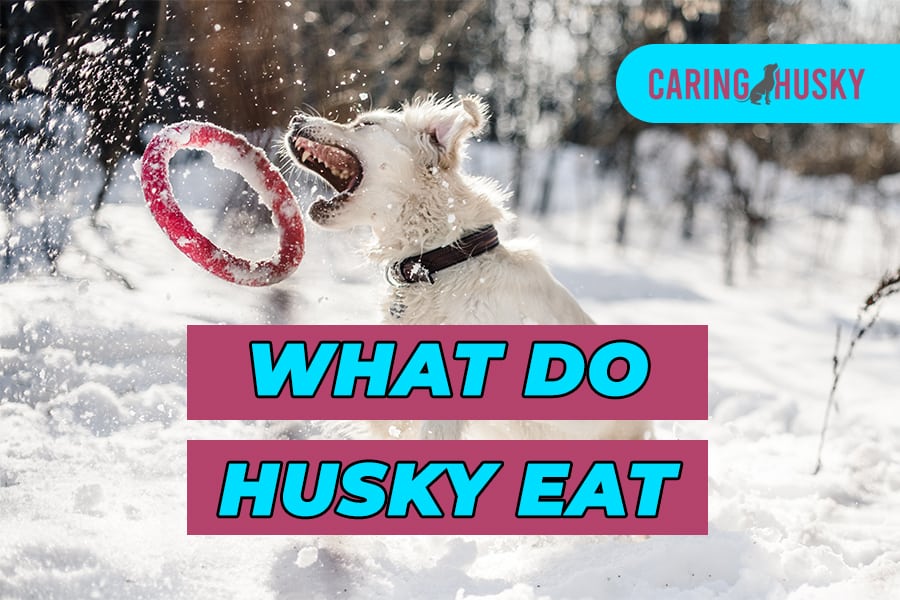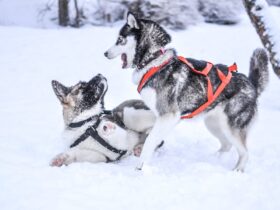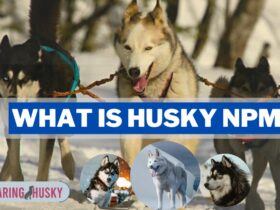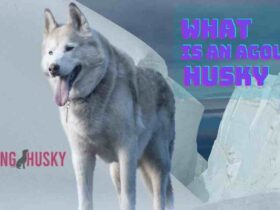Huskies, renowned for their striking appearance and energetic nature, are a breed that captivates many dog lovers. As members of the Spitz family, these intelligent and hardworking dogs are not just known for their role in sled pulling but also for their unique dietary needs. Understanding what Huskies eat is crucial for their health and well-being. This article delves into the various aspects of a Husky’s diet, from nutritional requirements to foods to avoid, ensuring your furry companion thrives. Whether you’re a seasoned Husky owner or considering bringing one into your family, this guide will provide valuable insights into properly nourishing these magnificent canines.
What do Husky eat?
With their high energy levels, Huskies require a balanced diet rich in proteins, fats, and carbohydrates. They do well on high-quality commercial dog food, but some owners opt for a raw food diet or homemade meals, ensuring they’re nutritionally balanced. It’s important to avoid foods toxic to dogs, like chocolate and grapes, and to be mindful of their portions to prevent obesity. Huskies’ dietary needs can vary based on age, activity level, and health, so it’s always wise to consult a vet to tailor their diet to their needs. Treats should be healthy and given in moderation. Remember, a well-fed Husky is a happy and energetic companion!
Husky’s Dietary Requirements
Huskies, known for their endurance and energy, have specific dietary requirements for their health and well-being. Here’s an overview of what their diet should include:
High-Quality Protein: Protein is essential for muscle development and maintenance. Huskies benefit from lean meats like chicken, turkey, beef, and fish. The protein content should be high, especially for active dogs.
Balanced Fats: Fats are a vital energy source for Huskies. They need a balanced intake of omega-3 and omega-6 fatty acids for healthy skin and coat. Sources like fish oil, flaxseed, and certain nuts are beneficial.
Carbohydrates: While not as crucial as proteins and fats, carbohydrates provide additional energy and help in digestive health. Sources like rice, vegetables, and certain grains are good, but they should be given in moderation to avoid weight gain.
Vitamins and Minerals: A well-balanced diet should include essential vitamins and minerals for overall health. Commercial dog foods usually contain these, but if you’re preparing homemade meals, you might need to supplement them.
Water: Adequate hydration is vital. Huskies need constant access to clean water, as they can be prone to dehydration, especially after exercise.
Portion Control and Feeding Frequency: The amount and frequency of feeding depend on the Husky’s age, weight, and activity level. Puppies generally require more frequent feedings of smaller portions, while adults can be fed twice a day.
Recommended Foods For Huskies
Recommended foods for Huskies should provide the necessary nutrients to support their high energy levels, maintain muscle mass, and promote overall health. Here are some options to consider:
- Look for reputable brands that offer well-balanced dog food with real meat as the primary ingredient. Ensure the food is appropriate for your Husky’s age and activity level (e.g., puppy, adult, or senior).
- Lean meats such as chicken, turkey, beef, and fish are excellent protein sources. They should be cooked and served without seasoning or bones to avoid digestive issues.
Fatty fish like salmon and mackerel provide omega-3 fatty acids, which support healthy skin and a shiny coat. Ensure the fish is boneless and cooked.
- Incorporate safe fruits and vegetables, such as carrots, sweet potatoes, blueberries, and apples, into their diet. These provide vitamins, minerals, and dietary fiber.
- Cooked white or brown rice can be added to their meals as a carbohydrate source, which provides energy.
- Eggs are a good source of protein and can be served cooked. Avoid adding any seasonings or oils.
- Plain, unsweetened yogurt can be given in moderation as it contains probiotics that support digestive health.
- Some Husky owners opt for commercial raw food diets for dogs. If choosing this option, ensure it is well-balanced and consult a veterinarian.
- When preparing homemade meals, ensure they are balanced and meet your Husky’s nutritional needs. Consult with a veterinarian or canine nutritionist for guidance.
The Importance Of Consistency In Feeding
Consistency in feeding is of paramount importance when it comes to ensuring the health and well-being of your Husky. Here’s why it matters:
Huskies, like all dogs, have sensitive digestive systems. Consistent feeding times help regulate their digestion, making it easier for their bodies to process food. Irregular feeding schedules can lead to digestive upsets, including diarrhea or constipation.
Consistency in portion sizes and feeding times is essential for controlling your Husky’s weight. Overfeeding or underfeeding can result in weight fluctuations, which may lead to obesity or malnutrition. A consistent routine helps you manage your calorie intake effectively.
You must consistently provide a well-balanced diet to meet your Husky’s nutritional needs. Deviating from their regular diet can result in nutrient imbalances or deficiencies. Consistency ensures they receive the suitable proteins, fats, carbohydrates, vitamins, and minerals.
Consistent feeding schedules are valuable for training purposes. If your Husky knows when to expect meals, they are more likely to be responsive to training commands, making it easier to teach them new behaviors or obedience.
A consistent feeding routine can help prevent behaviors like begging or food aggression. When your Husky knows when and what they will be fed, they are less likely to engage in disruptive behaviors around mealtime.
Dogs thrive on routine and predictability. A consistent feeding schedule gives your Husky a sense of security and stability. They come to expect their meals at certain times, reducing stress and anxiety.
Consistency allows you to monitor your Husky’s appetite and detect changes in their eating habits. If they suddenly refuse meals or show a lack of interest in food, it could be an early sign of a health issue that requires attention.
Conclusion
The dietary needs of Huskies are critical to ensuring their health and happiness. These energetic and hardy dogs thrive on a balanced diet of proteins, fats, and carbohydrates tailored to their age, size, and activity level. While high-quality commercial dog foods often provide a suitable base, some Huskies may benefit from a raw or homemade diet under the guidance of a veterinarian. It’s crucial to avoid foods harmful to dogs and maintain proper portion control to prevent obesity. Owners can ensure their Huskies lead a healthy, active, and fulfilling life by paying close attention to their diet and making informed choices about what to feed them. Always remember, a well-nourished Husky is not just a pet but a joyful and vibrant companion in life’s adventures.
FAQ’s
Do Huskies get sick easily?
Huskies are generally a robust breed, but like all dogs, they can get sick if not properly cared for. Their health depends on diet, exercise, and regular veterinary check-ups. Huskies may be prone to specific health issues like hip dysplasia and eye conditions, so preventive care is essential to keep them healthy.
Can I leave Husky alone?
Huskies are social dogs and thrive on companionship. While they can be left alone for short periods, it’s best to avoid long periods of isolation. Loneliness can lead to behavioral issues like separation anxiety, excessive barking, or destructive behavior. If you must leave your Husky alone, ensure they have toys and mental stimulation.
How do you calm a Husky?
To calm a Husky, provide regular exercise to release excess energy. Training with positive reinforcement helps focus their energy. Creating a quiet, comfortable space and calming techniques like massage or gentle petting can also help. Additionally, consider consulting a professional dog trainer for guidance.







Leave a Reply